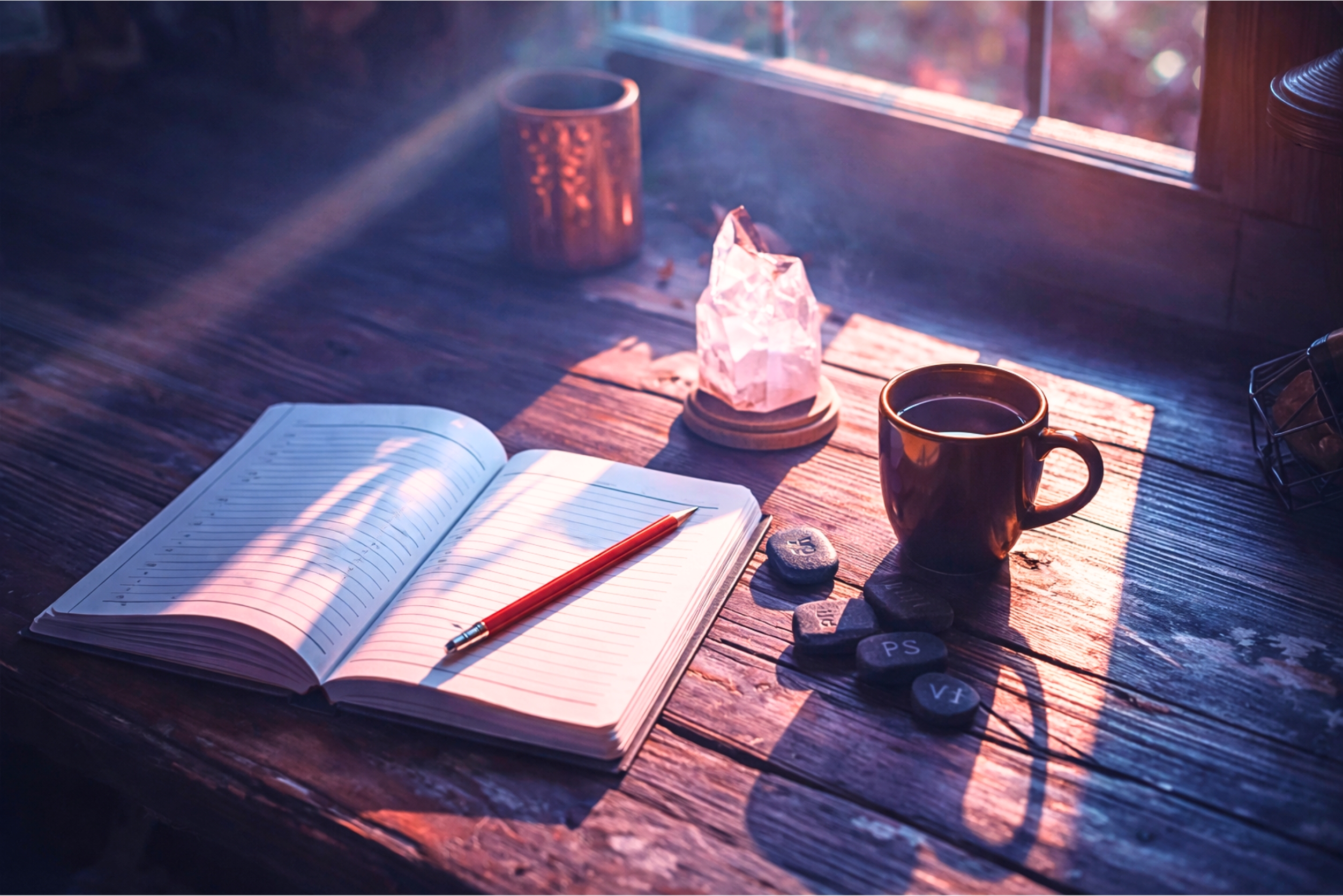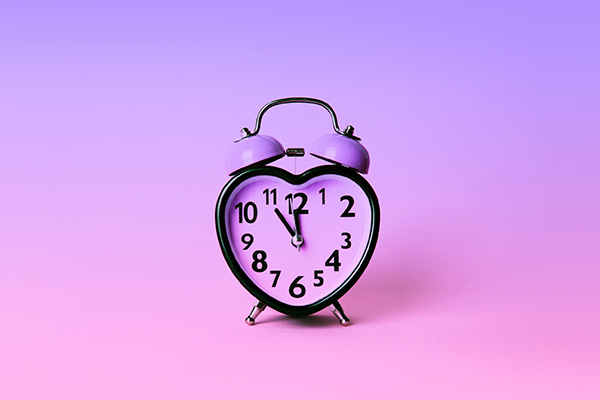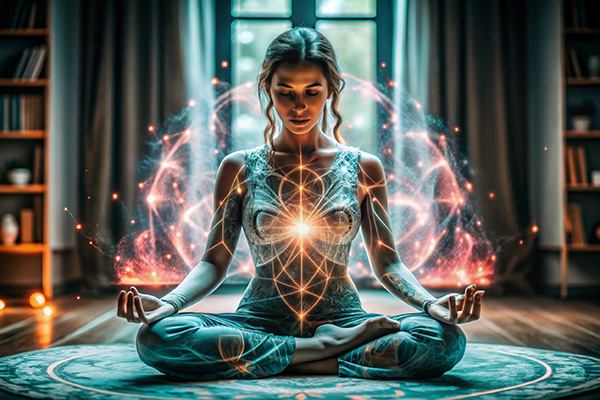self-help
Navigating Grief Without Losing Yourself
 In my work as a psychic reader, I have worked with many people navigating grief. Over the years, I have witnessed how people process loss and transition differently.
In my work as a psychic reader, I have worked with many people navigating grief. Over the years, I have witnessed how people process loss and transition differently.
I have often had to guide clients toward grounding, self-trust, and setting compassionate boundaries. And, as life would have it, I recently had to draw on that wisdom and apply it to my own family.
My father was recently admitted to hospice care at his local nursing home after spending a week in the hospital. His prognosis was poor.
As our family transitioned to this new phase of care, I stayed in touch with loved ones and made decisions centered on his comfort and dignity.
At the same time, I made a conscious effort to protect my emotional energy and maintain healthy boundaries so that I could stay grounded.
In these circumstances I’ve been grappling with a kind of grief that isn’t often acknowledged: the grief of realizing someone you love is no longer the person they once were.
Even when they are physically present, the relationship shifts. There can be a quiet heartbreak in adjusting to the present while remembering the past.
There is also grief in watching a family reorganize itself. During times of transition, long-standing dynamics often change. Some family connections deepen and some relationships no longer operate as they once did. This can also feel like a loss in terms of shared understanding and how things “used to be.” Sudden changes in family circumstances tend to reveal where everyone actually stands.
Time Apart Is Healthy For Your Relationship
 Have you noticed that your relationships with partner, friends and even family members are much better when you see them less often? There is real wisdom in the saying “absence makes the heart grow fonder.”
Have you noticed that your relationships with partner, friends and even family members are much better when you see them less often? There is real wisdom in the saying “absence makes the heart grow fonder.”
When we are around the same person for a very long time, they tend to eventually bore, frustrate, or annoy us. Time away is vital. We all need space to recharge our batteries and newly appreciate the people in our lives.
I know this is tried and true from having done may psychic readings over the years for people who found relief, and even rebirth, in their relationships after they had been away from their lovers, spouses, wives, husbands mothers, sisters, or friends. Not only did they ultimately appreciate their loved ones more, but they also got along much better with them.
There is on rare occurrences those who can tolerate being around each other 24/7 and get along wonderfully. But this rare.
Most of us need to take a break sometimes. If you want to enhance any relationship, taking a little time away (even just for the day) from each other can work wonders.
I know two people that have been married for a very long time, and it seems they are always happiest after hunting season. During the months of September and October this lady I read for is always so upbeat, full of energy and ideas, and brimming with creativity.
Why This Rune Reader ‘Reverse Plans’ Her Day
 If you’d asked me a few years ago how I welcomed a new day, I would’ve rattled off a checklist: what needs to be done, what must be scheduled, what’s urgent and what’s not. I thought a structure schedule and curated life was strength. I believed that manifesting my future meant controlling it before it even arrived.
If you’d asked me a few years ago how I welcomed a new day, I would’ve rattled off a checklist: what needs to be done, what must be scheduled, what’s urgent and what’s not. I thought a structure schedule and curated life was strength. I believed that manifesting my future meant controlling it before it even arrived.
But somewhere along my spiritual path, I began to dance to a different rhythm. It was a kind of sacred tempo that doesn’t rush or demand. That doesn’t forecast before it senses and feels.
Today, I want to share that magical alternative rhythm with you. I call it reverse planning. It’s not a rigid system, but an invitation to trust time the way a rune whispers its truth.
Our modern culture tends to treat calendars like hammers. We use them to nail down the future with agendas, meetings, goals, and deadlines. On paper, life appears orderly, efficient, and decided. But for many of us, that creates a low-level anxiety that’s hard to name.
We wake up already carrying the weight of what hasn’t even happened yet. The day feels predetermined before we’ve had a chance to participate in it.
As someone who reads runes, symbols that speak across the ancient thresholds of time, I’ve come to believe that true guidance rarely comes in the form of a command. Instead, it arrives quietly, in the pauses, in the spaces between breaths. That’s where reverse planning begins: with presence, not pressure.
True Love Has No Time Limit, And No Deadline!
 We live in a busy world where most of us have gotten used to a very hurried life. Everything is on a strict schedule and time limit, because we now judge everything this way.
We live in a busy world where most of us have gotten used to a very hurried life. Everything is on a strict schedule and time limit, because we now judge everything this way.
We have become a restless society demanding instant solutions and immediate gratification in all things.
If the line is too long at the supermarket or fast food restaurant, some of us get upset. If we have to wait for our doctor when we have an appointment, we become annoyed. Some cut in front of others, or even cross streets while the light is still red, because they hate to wait.
Similarly, if we do not get an immediate reaction from our latest love interest, some of us do not become just a little restless or anxious. No, they get really upset!
If this kind of hurried, rushed way of life plagues you, then you may definitely need an major attitude adjustment. Because your naturally loving heart and your capacity for love and romance may be in serious trouble.
Maybe your heart never got the memo that there was no need to constantly hurry up and adhere to time limits and deadlines.
What happened to dating? Romantic chats? Patiently anticipated expressions of affection? Dozens of love letters, and more recently emails and test messages? The joint holidays and weekends away? The looking forward to new adventures together?
The Empowered Empath’s Guide To Spiritual Self-Care
 Empaths, sensitives and intuitives tend to be givers. Loyal, sometimes to a fault, and fiercely protective of those they care about… moving at lightning speed whenever called upon.
Empaths, sensitives and intuitives tend to be givers. Loyal, sometimes to a fault, and fiercely protective of those they care about… moving at lightning speed whenever called upon.
So, when I say to an empath that it may be time to put themselves first, the response is often mixed.
But, if putting yourself first seems too selfish or too difficult, try something simpler: at least put yourself on an equal footing with those you love and care for.
For many sensitive and highly intuitive people, self-care must be an acquired behavior… and it’s a big one. Empaths intend to be selfless, to help, heal and facilitate those they care about. Wonderful!
But remember, if this is your goal, then begin with yourself. The stronger, healthier and happier you are then the more effective, nurturing and supportive you can be to those around you.
Putting yourself first doesn’t mean that you are doing only what you want to do all the time, and it doesn’t mean that you are suddenly going to ignore those you care about.
What it does mean is making it a priority to take care of your own physical, mental, emotional and spiritual needs. This can be a tall order and quite the task for some empaths. Don’t wait until you are in a meltdown… frustrated and snapping at everything and everyone around you, with little or no provocation.
How To Navigate Change Without Losing Your Mind
 Life has a way of plunging us into change, often without much warning.
Life has a way of plunging us into change, often without much warning.
One day you realise something feels different. A chapter is ending, another is beginning, and you are somewhere in between.
These moments invite us to slow down, take a breath, and check in with ourselves, even if we do not yet know what comes next.
We all move through transitions differently. Some people feel comforted by plans, lists, and clear goals. Having a sense of direction helps them feel grounded.
Others find that kind of pressure exhausting. Being told they should have everything figured out can feel more stressful than supportive, especially when life already feels full.
I have always leaned toward the second group. The expectation to define the future too neatly has often left me feeling stuck rather than inspired. Over time, I have learned that change does not always need big decisions or bold declarations. Sometimes it asks for something much simpler.
For me, that often starts with pausing and noticing what has already happened. Taking a moment to feel grateful for what I have lived through can be surprisingly calming. The hard parts that shaped me, the small joys that kept me going, the people who showed up when I needed them.
